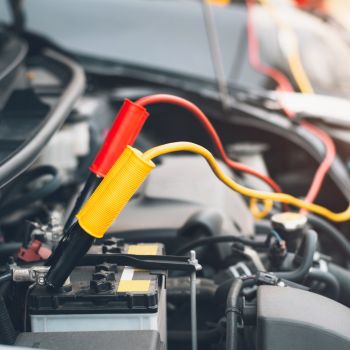 Who doesn’t want to keep their car running as long as possible? Unfortunately, myths about proper care persist, leading to unnecessary appointments or negligent, improper maintenance. To preserve the lifespan of your vehicle, keep these common car maintenance myths in mind.
Who doesn’t want to keep their car running as long as possible? Unfortunately, myths about proper care persist, leading to unnecessary appointments or negligent, improper maintenance. To preserve the lifespan of your vehicle, keep these common car maintenance myths in mind.
You Need to Change the Oil Every 3,000 Miles
Rather than a myth, this statement has become an older practice. While the 3,000-mile mark remains relevant for some older vehicles, those manufactured within the past 15 years require an oil change every 5,000 to 10,000 miles.
Type of oil also factors into this schedule. Cars using full-synthetic oil tend to require a change every 10,000 to 15,000 miles. Check your owner’s manual for a more precise figure, so you’re not left guessing.
Warm Up Your Car Before Driving in the Cold
Your car performs better in the cold when warmed up, but these benefits for the transmission system and wheel bearings tend to come from driving your vehicle, rather than it idling. This practice just warms up the interior and has no effect on fuel mileage or vehicle wear.
Batteries Last at Least Five Years
Car batteries typically last between three and five years. Aspects that can shorten their lifespan include how frequently you drive, if you travel in stop-and-go traffic and if you live in an extremely cold or hot climate.
Batteries Recharge After a Jump
This myth is rooted in fact: After your battery is jump-started, it will begin to charge. However, you’ll only reach the full, original charge if you drive for at least an hour and use few of your car’s features.
To achieve this, drive around for a couple hours without using the radio, heated seats or lights. Storing your car in a location with cold temperatures can cause the battery to drain sooner.
All Cars Benefit From Premium or Top-Grade Fuel
You want the best for your car, so you pay for premium gas at the pump. However, premium gas is better suited to high-compression, performance-oriented engines and won’t have an effect on a standard economy engine.
Instead, premium fuels are formulated with cleaners and protectants that uphold the performance of a sports car and help reduce risks for engine knocking. For most drivers, the most affordable 86 or 87 fuel is sufficient and any higher grade won’t equal a performance boost or cleaner engine. Doing this regularly may start to negatively impact engine performance.
All Tires Need to Be Replaced at the Same Time
While front tires can experience similar degrees of wear, all four tires on your vehicle don’t need to be replaced at the same time. A worn, punctured or otherwise damaged tire can be taken off and replaced with one of a similar brand, size and rubber. From here, make sure your tires get rotated every time you go in for an oil change.
Warranties Only Apply for Repairs Done at a Dealership
Many drivers believe their vehicle’s warranty only applies if they are getting repairs and routine maintenance performed at a manufacturer-owned repair shop. Related to this, they might think that repairs done at an independently owned shop won’t be covered or, worse, could void their warranty.
While some dealerships may imply these factors, your warranty applies to all covered repairs no matter where you have the work performed. The repair shop is expected to follow the maintenance schedule and recommendations specified in your car’s owner’s manual. In turn, you are encouraged to save all receipts to show that you’ve kept up with regularly scheduled maintenance.
Understand that not following this maintenance schedule or what’s specified in the owner’s manual can void your warranty.
Transmission Fluid Should Be Changed Every 50,000 Miles
This deadline applies to older vehicles and older types of transmission fluids. Today’s advances mean that most cars receive a longer-life formula that may need to be changed between 90,000 to 100,000 miles. These formulas may last the car’s full lifespan, based on care.
Rolling Down the Windows Instead of Using the Air Conditioner
This myth has persisted for two reasons. One, many drivers assume that using the air conditioner consumes more fuel and therefore impacts fuel economy. Second, some believe that opening the windows cools the engine better.
Yet using the car’s AC has little to no impact on fuel economy. Opening the windows can actually compromise the vehicle’s aerodynamic properties and may cause your car to consume more fuel.
Brake Fluid Doesn’t Need to Be Changed
On average, brake fluid gets changed every two to three years. The fluid picks up moisture and debris that compromise its consistency and can contribute to brake system corrosion or potential failure.
Electric Vehicles Don’t Require Maintenance
Most people believe that no gas equals no maintenance. Yet electric vehicles still require regular maintenance, although spaced out more than a fuel-powered combustion vehicle, to ensure all systems and parts function optimally.
Looking to keep up with regularly scheduled maintenance for your vehicle? Make an appointment with DaSilva’s Auto Body today.




